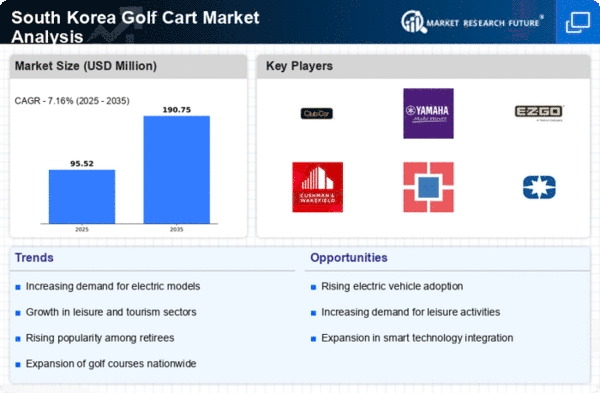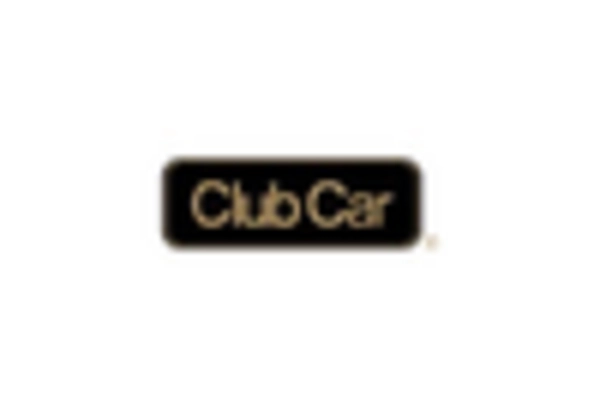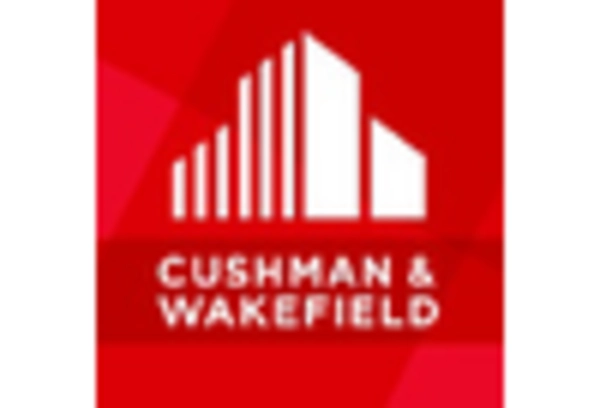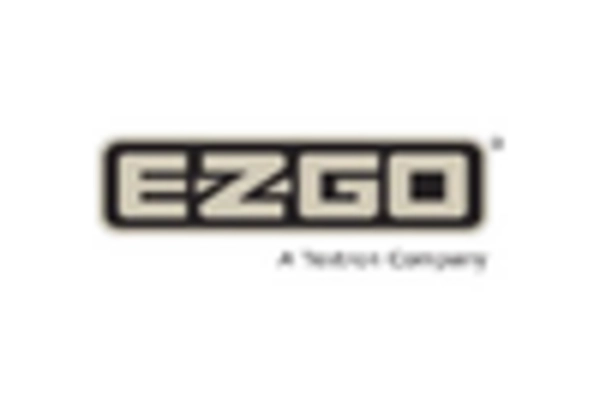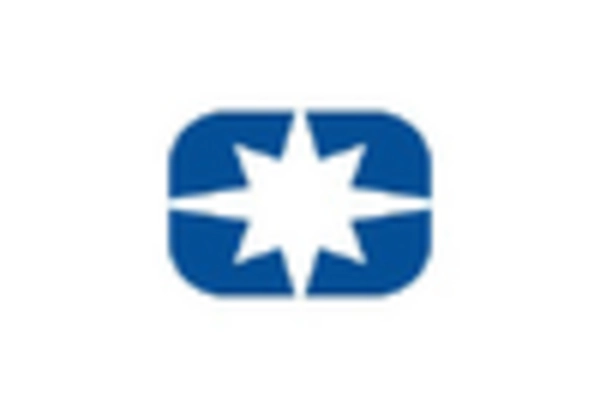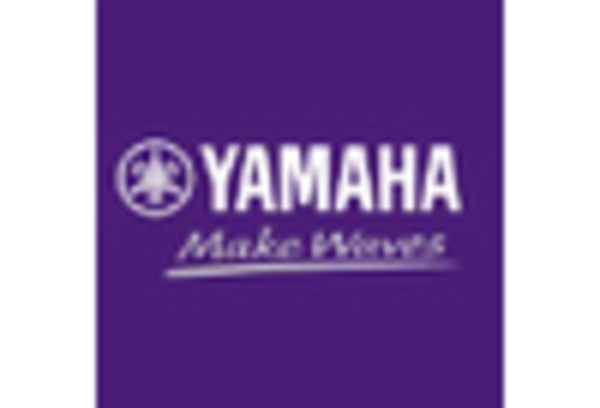Increased Urbanization
The trend of urbanization in South Korea appears to be influencing the golf cart market significantly. As cities expand and populations grow, the demand for efficient transportation solutions within urban areas increases. Golf carts, known for their compact size and maneuverability, are becoming a preferred choice for short-distance travel in urban settings. This shift is likely to drive sales in the golf cart market, as more individuals seek convenient alternatives to traditional vehicles. Furthermore, urban developments often include golf courses and recreational areas, which may further stimulate the demand for golf carts. The urbanization rate in South Korea has been reported at approximately 82%, indicating a substantial market potential for golf carts as urban lifestyles evolve.
Expansion of Golf Courses and Resorts
The expansion of golf courses and resorts in South Korea is expected to have a positive impact on the golf cart market. As new facilities are developed, the demand for golf carts to facilitate transportation within these venues is likely to increase. The golf cart market may see growth as resorts and golf clubs invest in fleets of carts to enhance the customer experience. Recent reports indicate that the number of golf resorts is on the rise, with several new projects underway. This expansion not only creates opportunities for sales but also encourages the rental market for golf carts, further driving growth in the industry.
Growing Interest in Leisure Activities
The rising interest in leisure activities among South Koreans is likely to bolster the golf cart market. As more individuals engage in recreational pursuits, particularly golf, the demand for golf carts is expected to increase. The golf cart market may benefit from the growing number of golf courses and clubs, which are becoming more accessible to the public. Recent statistics indicate that the number of golf courses in South Korea has reached over 500, reflecting a robust infrastructure for golf enthusiasts. This trend suggests that as leisure activities gain popularity, the golf cart market could experience a corresponding rise in demand, driven by both individual purchases and rentals at golf facilities.
Technological Integration in Golf Carts
The integration of advanced technologies into golf carts is poised to transform the golf cart market. Features such as GPS navigation, Bluetooth connectivity, and enhanced battery management systems are becoming increasingly common. These technological advancements not only improve the user experience but also attract a younger demographic to the golf cart market. As South Korea continues to embrace smart technologies, the demand for high-tech golf carts is likely to rise. The market may witness a surge in sales as manufacturers innovate and offer more sophisticated models. This trend suggests that the future of the golf cart market could be heavily influenced by technological advancements, appealing to tech-savvy consumers.
Shift Towards Sustainable Transportation
The golf cart market is likely to benefit from the increasing emphasis on sustainable transportation solutions in South Korea. With a growing awareness of environmental issues, consumers are becoming more inclined to choose eco-friendly options. Golf carts, particularly electric models, align well with this trend, offering a low-emission alternative for short-distance travel. The South Korean government has been promoting green initiatives, which may further encourage the adoption of electric golf carts. As the market for electric vehicles expands, the golf cart market could see a significant uptick in sales, particularly among environmentally conscious consumers. This shift towards sustainability may also lead to innovations in golf cart design and functionality, enhancing their appeal.


